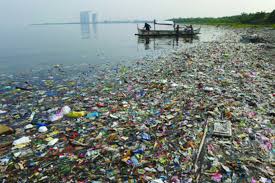Islam is a religion with a strong distaste for wastage and using things beyond what is needed and necessary. This concept is illustrated in the following Quranic verse:
“O you who believe! Make not unlawful the good things which Allah has made lawful for you, but commit no excess: for Allah loves not those given to excess.”
(Quran 5:87)
There is also a hadith which talks about wastage in the context of water:
Abdullah bin ‘Umar reported that the Messenger of Allah passed by Sa’d while he was making ablution and said, “What is this wastefulness?” Sa’d replied, “Is it possible to be wasteful during ablution?” to which the Messenger of Allah replied, “Yes, even if you are on the bank of a flowing river.”
(Reported in Sunan Ibn Majah)
From this hadith, we can see that the Prophet’s prohibition of wastefulness even in abundance of the resource was an attempt to teach his companions that the idea of not wasting was to be internalised as a general attitude they should have at all times, even when there are seemingly no consequences for the wasting.
This can be applied to the phenomenon of climate change today, in which people are consuming products in excess, encouraging the release of more and more greenhouse gases into the environment, without seeing any immediate repercussions for their actions.
A friend of mine from NUS wrote in one of her term papers that this hadith implies that Islam “appears to be more of a virtue ethic, rather than a consequentialist one”. We save water largely not because of the consequences of wasting, but because wastage itself is unacceptable.
